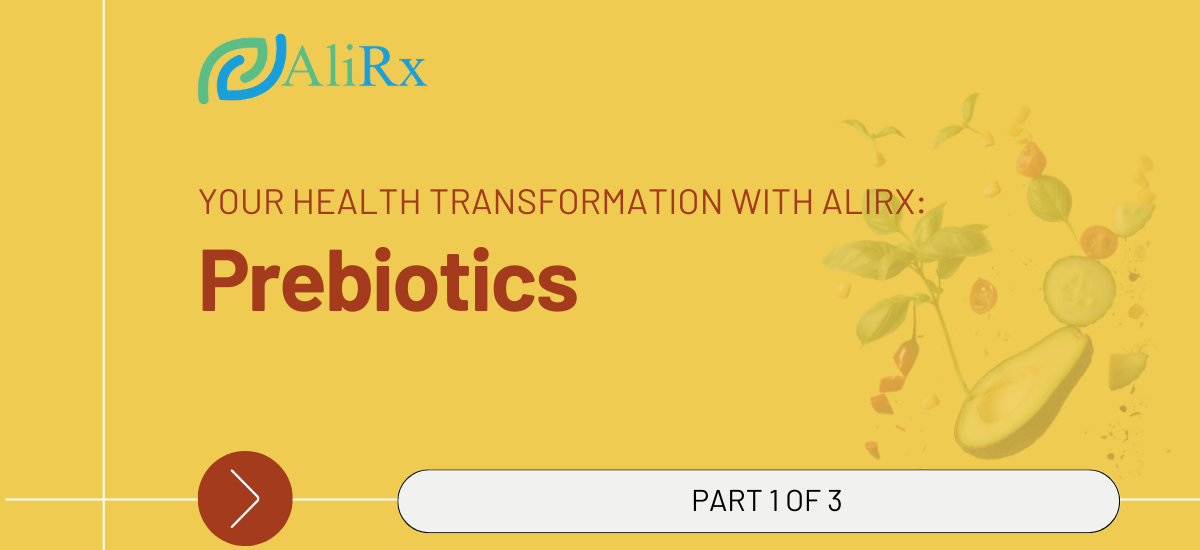“Let food be thy medicine and medicine be thy food.”
Hippocrates
An introduction to prebiotics
Prebiotics are a type of dietary fiber that feeds the friendly bacteria in your gut, also known as probiotics. While probiotics have received a lot of attention in recent years for their health benefits, prebiotics are just as important for supporting a healthy gut microbiome.
Here’s a detailed look at what prebiotics are, and the health benefits they offer.
What are prebiotics?
Prebiotics are a type of indigestible fiber that passes through the digestive system without being absorbed. Once they reach the colon, they are fermented by the bacteria living there, providing a food source for the probiotics in your gut. Some common sources of prebiotics include:
- Chicory root
- Jerusalem artichoke
- Onions
- Garlic
- Leeks
- Asparagus
- Bananas
- Apples
- Flaxseeds

Health benefits of prebiotics:
- Improved digestion: Prebiotics can help promote regular bowel movements and prevent constipation. They also help to balance the pH levels in the gut, which can help reduce the risk of digestive issues such as bloating and gas.
- Increased nutrient absorption: Prebiotics help to nourish the good bacteria in the gut, which can improve nutrient absorption and promote better overall health.
- Boosted immune function: The gut microbiome plays a critical role in immune function. Prebiotics can help support a healthy gut microbiome, which in turn can help boost the immune system.
- Reduced inflammation: Some research suggests that prebiotics may help reduce inflammation in the body. This is important because chronic inflammation has been linked to a variety of health issues, including heart disease, diabetes, and cancer.
- Improved mental health: There is growing evidence that the gut microbiome may play a role in mental health. Some studies have shown that prebiotics may help reduce symptoms of anxiety and depression.
How to incorporate more prebiotics into your diet:
One of the easiest ways to incorporate more prebiotics into your diet is to eat a variety of fruits, vegetables, and whole grains. Some easy ways to add prebiotics to your meals include:
- Adding sliced onions or garlic to soups and stews
- Incorporating asparagus or leeks into omelets or stir-fries
- Adding flaxseeds to smoothies or baked goods
- Snacking on sliced apples or bananas with nut butter
It’s important to note that prebiotics are not a substitute for probiotics. While prebiotics provide the food source for probiotics, probiotics themselves are the beneficial bacteria that help support a healthy gut microbiome. For optimal gut health, it’s important to incorporate both prebiotics and probiotics into your diet.
In conclusion, prebiotics are an important type of dietary fiber that provides a food source for the beneficial bacteria in your gut. They offer a wide range of health benefits, including improved digestion, increased nutrient absorption, boosted immune function, reduced inflammation, and improved mental health. By incorporating more prebiotic-rich foods into your diet, you can support a healthy gut microbiome and improve your overall health.





